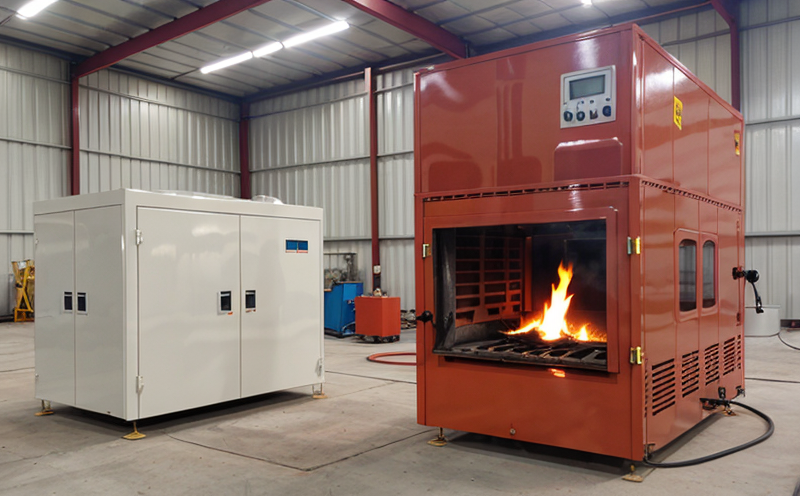ASTM C531 Thermal Expansion of Composites
The ASTM C531 standard provides a method for determining the linear thermal expansion coefficient (CTE) of composites. This is particularly important in industries where materials are exposed to temperature variations, such as aerospace, automotive, and electronics.
Thermal expansion affects many composite materials used in industrial applications due to their heterogeneous nature. Understanding how these materials expand or contract with changes in temperature can help engineers design products that perform reliably under varying environmental conditions.
The ASTM C531 test involves subjecting the specimen to a controlled temperature change and measuring its resulting dimensional variations using an accurate measurement system. This process allows for precise determination of the coefficient, which is essential for predicting performance in real-world applications.
For composites containing different types of fibers or fillers, the thermal expansion can vary along the length, width, and thickness directions. ASTM C531 offers a method to measure these directional coefficients separately, providing valuable insights into material behavior under temperature changes.
The test is critical for quality assurance in industries that rely on precise dimensional stability of their products. By ensuring accurate measurement of thermal expansion, manufacturers can improve product reliability and reduce the risk of failure due to temperature-induced stresses.
Scope and Methodology
| Parameter | Description |
|---|---|
| Material Type | Composites with known or variable properties |
| Dimensions | Samples should be rectangular prisms with a length-to-width ratio of at least 3:1 |
| Surface Finish | Samples must have a smooth, flat surface for accurate measurement |
| Parameter | Description |
|---|---|
| Thermal Expansion Analyzer | A calibrated instrument capable of measuring length changes with high precision |
| Temperature Control | The system should provide controlled heating and cooling to specified rates |
The test procedure involves heating the specimen at a constant rate, typically 5°C/min or as specified by the user. Simultaneously, the length of the specimen is measured using the thermal expansion analyzer. The difference in length before and after the temperature change provides the linear thermal expansion coefficient.
Multiple measurements are taken to ensure accuracy, with data points collected at various temperatures along the heating cycle. This allows for a comprehensive understanding of how the material responds over its entire temperature range.
Benefits
- Identifies thermal expansion coefficients for composite materials
- Ensures product reliability in temperature-sensitive applications
- Aids in the design of components that can withstand temperature variations
- Promotes consistency and repeatability in manufacturing processes
Environmental and Sustainability Contributions
The ASTM C531 test supports the development of materials that can be used in a wide range of applications, from structural components to electronic devices. By understanding how these materials behave under temperature changes, engineers can design products that are more durable and efficient.
Materials with controlled thermal expansion properties are particularly useful in reducing stress and strain on components, which can lead to longer product lifespans. This contributes to environmental sustainability by extending the operational life of products without requiring replacement or repair.





